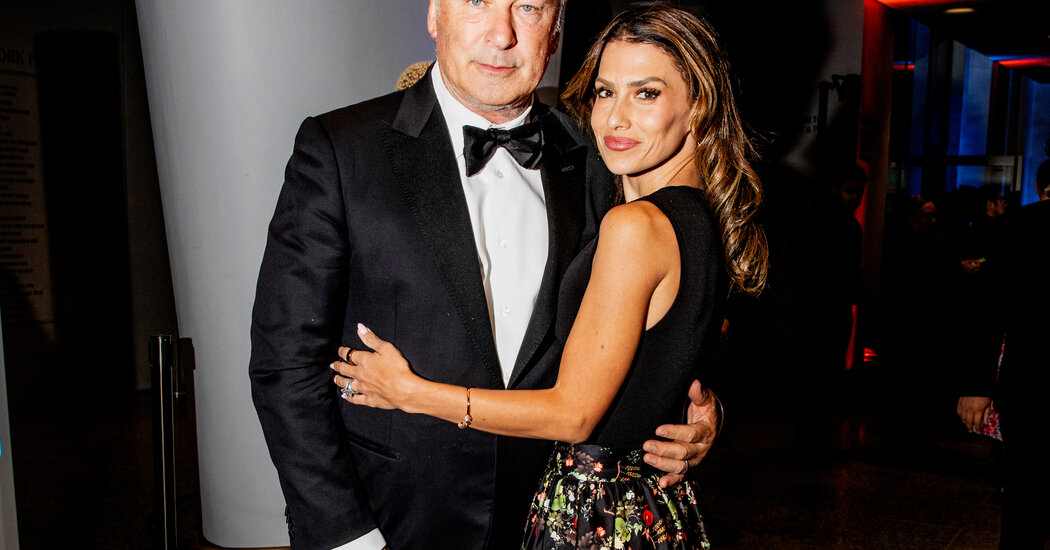It was the cooking demo heard round the world.
During the Covid-19 lockdown of December 2020, online sleuths stuck at home began digging up past public appearances of Hilaria Baldwin, a yoga instructor and the wife of Alec Baldwin. They were pointing out what they viewed as discrepancies in her Spanish accent and in stories she had told about childhood experiences in Spain.
A chief example was one in which Ms. Baldwin seemingly forgot the English word for cucumber during a cooking segment on the “Today” show, an event that The New York Times once called “the unfortunate cucumber moment.”
Five years later, in a new memoir, “Manual Not Included,” Ms. Baldwin talks about being “canceled” over claims that she was faking a Spanish accent. She doubles down in defending her speech, explaining that it is the result of a common tendency among bilingual speakers to “code-switch.”
She also invokes medical research around how common this behavior is and notes that her attention deficit hyperactivity disorder can affect her speech.
In the first chapter of the memoir, which Simon and Schuster published on May 6, Baldwin writes that “a coordinated mob” fueled by misogyny had set its sights on her in 2020, leading to global media circus over the perceived inconsistencies with her Spanish accent.
“It was miserable trying to explain it on the world stage,” she writes. “It just is what it is, and I didn’t know how to be any different.”
Ms. Baldwin’s memoir is her latest foray into public life since the accent accusations in 2020 and her husband’s involvement in a fatal on-set shooting less than a year later. The Baldwins are also starring in a reality television show, “The Baldwins,” on TLC.
Ms. Baldwin was born Hillary Hayward-Thomas in Boston. She grew up traveling back and forth to Majorca, she has said, a place her father had felt strongly connected to since his childhood.
But over time, that distinction blurred, with a biography on the website of her talent agency, Creative Arts Agency, at one point stating that she was born in Mallorca. Ms. Baldwin also spoke with what The Times once referred to as “a slight Spanish accent” from “a childhood split between Boston and Spain.” Her own husband once said, on a late-night TV show, “My wife is from Spain.”
Ms. Baldwin writes in her book that she identified as “multicultural” and that she “code-switched” between Spanish and English. That “culturally fluid” existence, as she called it, culminated in the widely seen awkward moment when Ms. Baldwin, during a live cooking segment on NBC’s “Today” show, motioned toward a cucumber and asked her fellow host, “How do you say in English?”
So on Dec. 21, 2020, a woman using the social media account @Lenibriscoe began unraveling what she called Ms. Baldwin’s “decade-long grift where she impersonates a Spanish person.” She shared clips of Ms. Baldwin that are now well known, pointing out inconsistencies in her accent and her back story. (The account has since been made private.)
Ms. Baldwin writes that she now tries to laugh about the uproar but that at the time, the incident broke her. Her fluctuating accent, she writes, is now more widely understood as a fate of many bilingual people. She cited research from a friend who is in medical school, complete with terms such as “Wernicke’s area,” “anterior cingulate cortex” and “basal ganglia.”
Ms. Baldwin went on to reveal that she had been diagnosed with dyslexia and attention deficit hyperactivity disorder, which affects her speech. After the social media drama, she writes, she took speech therapy to improve her enunciation.
“Growing up being neurodivergent, I had to work harder in school than many of the people around me,” she writes, adding, “I’m now aware that my brain just works differently and I can really succeed in the right environments and tasks.”
And while she now understands the controversy better, Ms. Baldwin writes of that time, “When I woke up, I wanted to be dead.” Almost five years later, Ms. Baldwin regained her confidence in her multicultural identity, she says in the book, and continues to raise her seven children while speaking Spanish and introducing them to Spanish dishes.
“Looking back, I have learned that it isn’t just malice and ignorance that led to the insanity I experienced; it really was about a woman and her voice,” she writes. “Taking her voice.”











